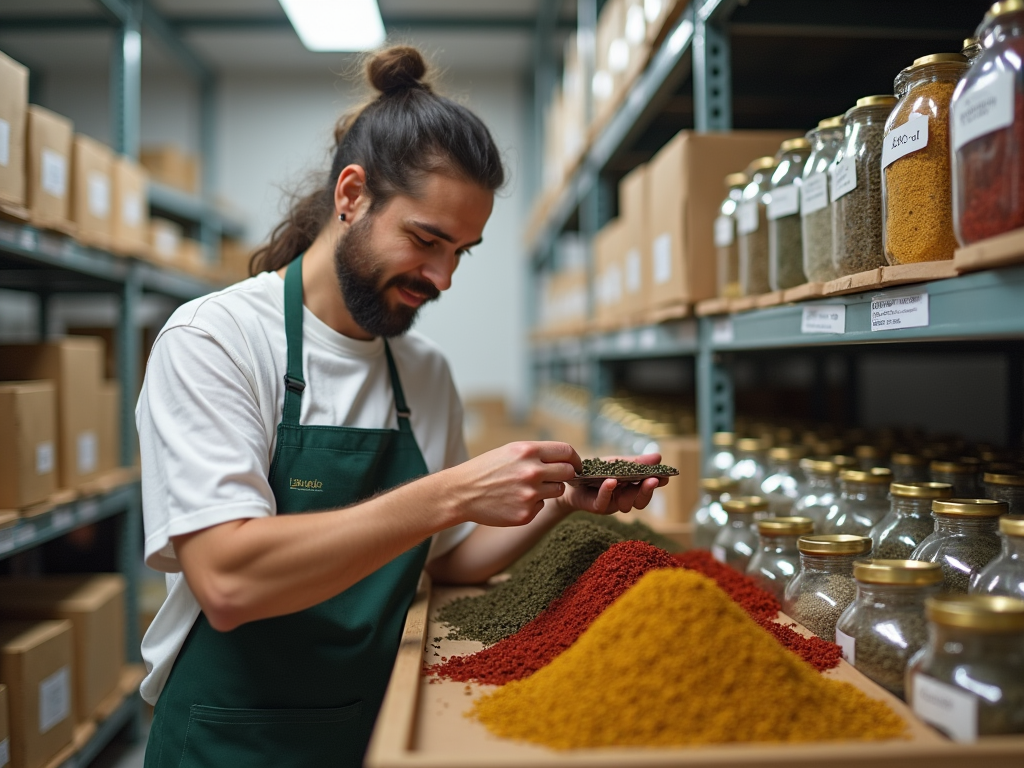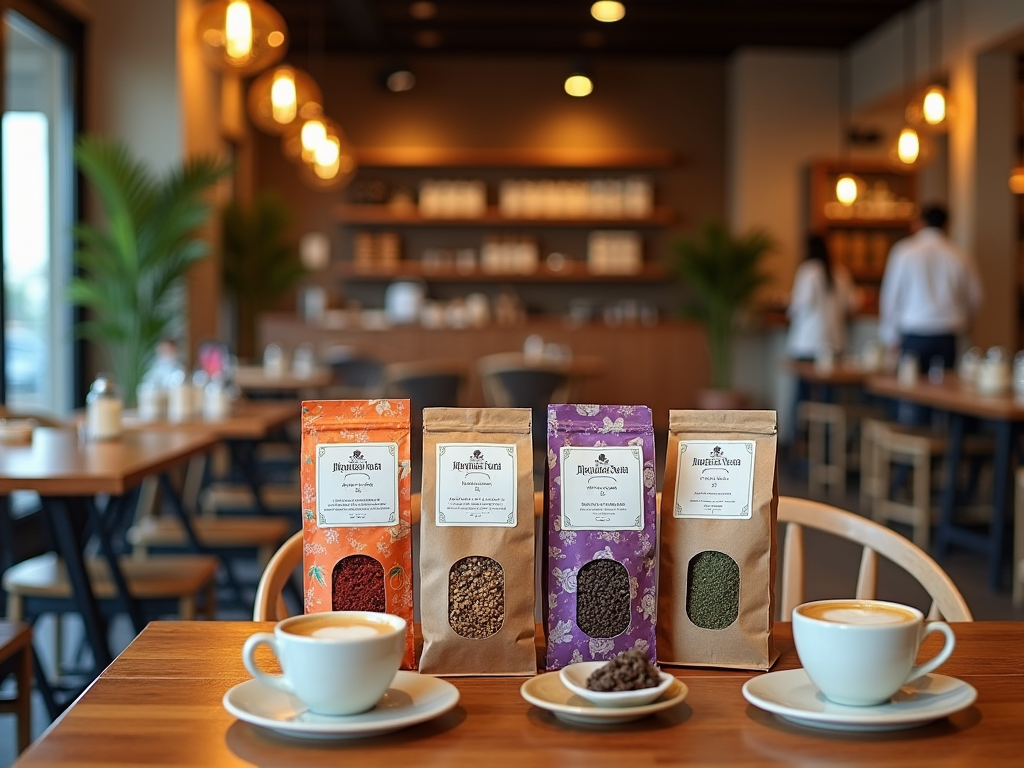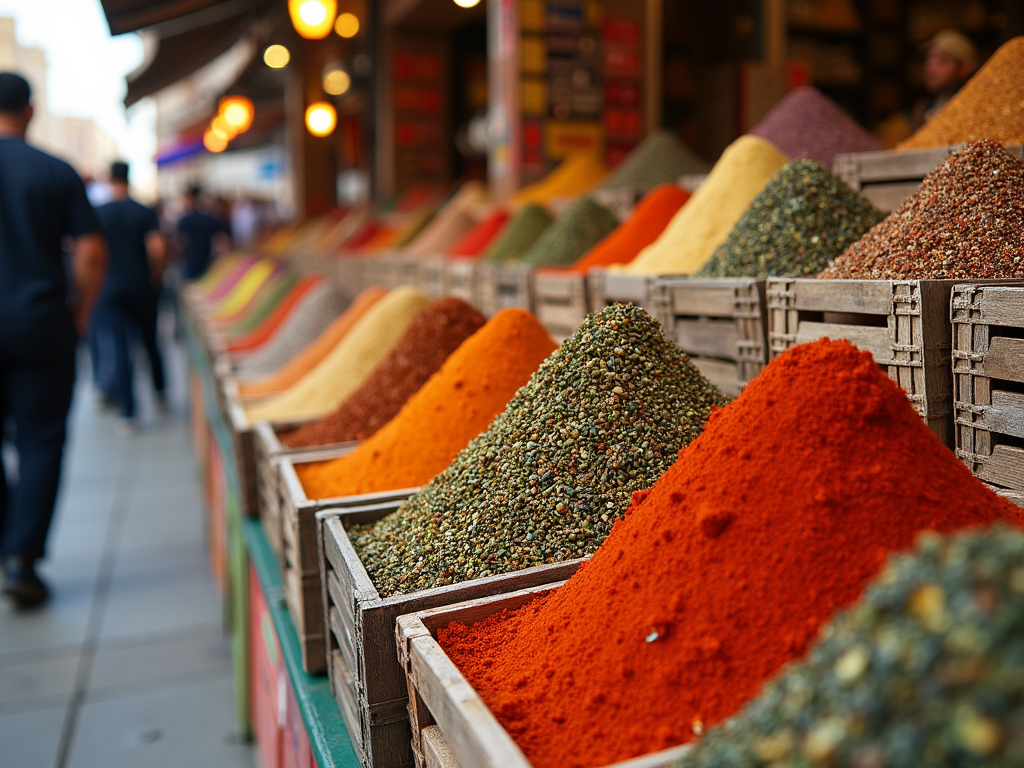Starting a tea and spices trading business in Dubai is an exciting venture, tapping into a vibrant market characterized by a rich cultural heritage and a diverse consumer base. The region’s trade-friendly environment offers numerous opportunities for entrepreneurs looking to make their mark in the food and beverage sector. In this article, we will explore key steps and strategies needed for launching a successful tea and spices trading business in Dubai, including market analysis, legal requirements, and essential marketing tactics.
Understanding the Market Demand

Before diving into any business, grasping the market demand is crucial. The tea and spices market in Dubai is experiencing significant growth, influenced by both local tastes and international culinary trends. Factors such as the increasing popularity of gourmet teas and spices, coupled with the influx of tourists, make this an opportune time to start a trading business. A thorough market analysis includes understanding consumer preferences, identifying potential competitors, and exploring sales channels.
Here are some aspects to consider when evaluating market demand:
- Consumer Trends: The growing health consciousness among consumers emphasizes herbal teas and organic spices.
- Demographics: A diverse population, including expatriates, influences the variety of teas and spices required.
- Seasonality: Certain spices and tea varieties see higher sales during festivals and holidays.
- Retail Channels: Consider supermarkets, specialty stores, and online platforms for distribution.
- Quality Preferences: High-quality products are preferred; thus, sourcing from trusted suppliers is essential.
Legal Requirements and Licensing

Dubai’s business environment is stringent about regulations, so obtaining the necessary licenses is imperative for a tea and spices trading business. The first step is to choose the appropriate business structure, typically as a sole proprietorship or a limited liability company (LLC). Once the structure is selected, you will need to register your business with the Department of Economic Development (DED) in Dubai.
Key legal requirements include:
- Acquiring a trade license specific to food and beverage goods.
- Registering for import and export licenses if you plan to source products from abroad.
- Meeting health and safety standards as mandated by Dubai Municipality.
- Obtaining additional certifications for organic or specialty products, if applicable.
- Adhering to labeling regulations that ensure product transparency for consumers.
Once you have your business framework in place, it’s time to start sourcing quality tea and spices. Building solid relationships with reliable suppliers will not only ensure product consistency but also provide leverage when negotiating prices. Consider attending trade fairs and exhibitions held in Dubai or abroad to connect with potential suppliers. It’s essential to seek out suppliers who adhere to quality control standards and can provide documentation regarding product sourcing and safety.
Here are tips for finding reputable suppliers:
- Research suppliers in producing countries such as India, Sri Lanka, and Indonesia.
- Request samples to assess product quality before making bulk orders.
- Read reviews and testimonials from other traders or retailers.
- Negotiate terms and conditions that allow for flexibility in purchasing.
- Establish contracts that detail pricing, delivery timelines, and quality assurance measures.
Marketing Strategies for Success
Effective marketing strategies are vital to the success of your tea and spices trading venture in Dubai. Given the competitive landscape, it’s essential to create a strong brand presence that resonates with your target audience. Utilize both traditional and digital marketing channels to generate awareness and attract customers. Some effective techniques include social media marketing, content marketing, participating in local food expos, and engaging with food bloggers.
Key marketing strategies to implement include:
- Digital Marketing: Develop an informative website and utilize SEO to improve visibility online.
- Social Media: Engage customers on platforms like Instagram and Facebook to showcase products and create a community.
- Sampling Events: Organize tasting events at local markets or exhibitions to attract potential customers and gather feedback.
- Partnerships: Collaborate with local restaurants and cafes to feature your products.
- Brand Story: Share your brand’s journey and commitment to quality to connect with consumers emotionally.
Conclusion
Starting a tea and spices trading business in Dubai can be a rewarding venture if approached strategically. From understanding market demand and legal requirements to finding reliable suppliers and implementing effective marketing strategies, each step plays a crucial role in establishing a successful business. The key is to remain flexible, adapt to market changes, and continuously seek ways to enhance your product offerings and customer service.
Frequently Asked Questions
1. What is the initial investment required to start a tea and spices trading business in Dubai?
The initial investment varies based on the scale of the business, but you should be prepared for costs including licensing, inventory, marketing, and setting up a retail space, which can range from AED 50,000 to AED 200,000 or more.
2. Are there specific regulations for importing spices to Dubai?
Yes, all imported spices must comply with Dubai Municipality’s food safety standards and regulations. You will need to obtain necessary import licenses and ensure proper labeling on your products.
3. How can I promote my tea and spices business in Dubai?
You can promote your business through digital marketing, social media, participation in local events, and collaborations with local shops or restaurants. Building a strong online presence will also significantly help in attracting customers.
4. Is it better to source products locally or internationally?
This depends on your specific business model, target market, and the quality of products available. Sourcing internationally may allow for better variety and pricing, while local sourcing could mean fresher products and easier transactions.
5. What are some challenges I might face in this industry?
Challenges include intense competition, fluctuations in spice prices, maintaining product quality, navigating import/export regulations, and dealing with changing consumer preferences. Adapting quickly and remaining informed about market trends can alleviate some of these challenges.
